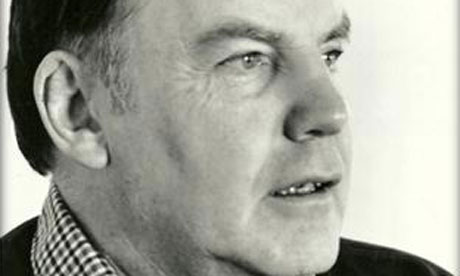
Andrew Walker, who has died aged 85, used to joke that if he wanted to feel like a famous journalist, he was more likely to feel it in the Commonwealth than in London. For many years he was the Commonwealth correspondent of the BBC World Service, and for a time chairman of the Commonwealth Journalists Association. He also trained journalists in their own countries, was the author of two books on the Commonwealth, and later wrote a book celebrating the BBC World Service and its then 60-year history.
Born in Cornwall, the son of a doctor, he went to Ravenscroft prep school, Devon, before going to St Paul's school, London, on a scholarship. When he left school in 1943, his first job was as a teaboy on the Evening Standard. He was then called up and fought in Germany, Egypt and Palestine. After being demobbed in 1947, Walker worked on the Muswell Hill Record, north London, the Derby Evening Telegraph, the Cambridge Daily News and the East Anglian Daily Times in Ipswich. He then returned to London as a journalist on the trade magazine Chemical Age.
In 1955 the BBC took him on as a trainee in what was then the BBC External Services, first as a subeditor and then chief subeditor of the newsroom. A switch to the Central Office of Information in 1966 gave him a glimpse of public relations. But, as the job entailed touring abroad with ministers, it also gave him a taste of the Commonwealth. When he returned to the external services a year later, it was as Commonwealth correspondent. He had found his metier and remained in this role until his retirement in 1985, by which time he was also a defence correspondent.
Commonwealth affairs could be touchy, especially so when Walker visited Ghana in 1978. The country was then run by General IK Acheampong, who called a referendum on whether people were satisfied with his military government. A judge was set up as electoral commissioner, with the secret brief to deliver the right result; instead, he went into hiding. Walker discovered this and attempted to telex the story after troops had been sent to the judge's office because "there is a BBC man putting out false information". His script was confiscated. He recorded his scoop on to a cassette, which was smuggled out of the country by an unnamed traveller. Walker himself left Ghana by taxi and on foot before his scoop was broadcast.
As chairman of the Commonwealth Journalists Association, he conducted classes in journalism, especially in Africa. He tried to spread the view that a free press was essential for the state as much as for the individual because it could expose faults that could be corrected before they became runaway disasters. The authorities and his pupils were sometimes startled by his maxims, but they tended to ask him back.
Walker's first book, The Modern Commonwealth (1975), set the organisation clearly in the context of its past history and present value. It was followed in 1978 by The Commonwealth – A New Look, which considered its future.
His BBC Voice of the World booklet, written anonymously to celebrate the 50th anniversary of what had become the BBC World Service, came out in 1982 and was followed in 1992 by a fuller hardback history under his own name, A Skyful of Freedom – a play on the phrase "A skyful of lies" with which the Burma government attacked BBC broadcasts in 1990.
In his retirement Walker lived in Brighton and wrote on local history, including a book, Churchill Square Revisited – A Lost Brighton Community (2003), exploring how a fishermen's quarter had been extinguished by development.
He married Avril Dooley in 1956. She predeceased him, and he is survived by their two sons, two daughters and two grandchildren.
• Andrew Walker, journalist and author, born 19 May 1926; died 27 April 2012

